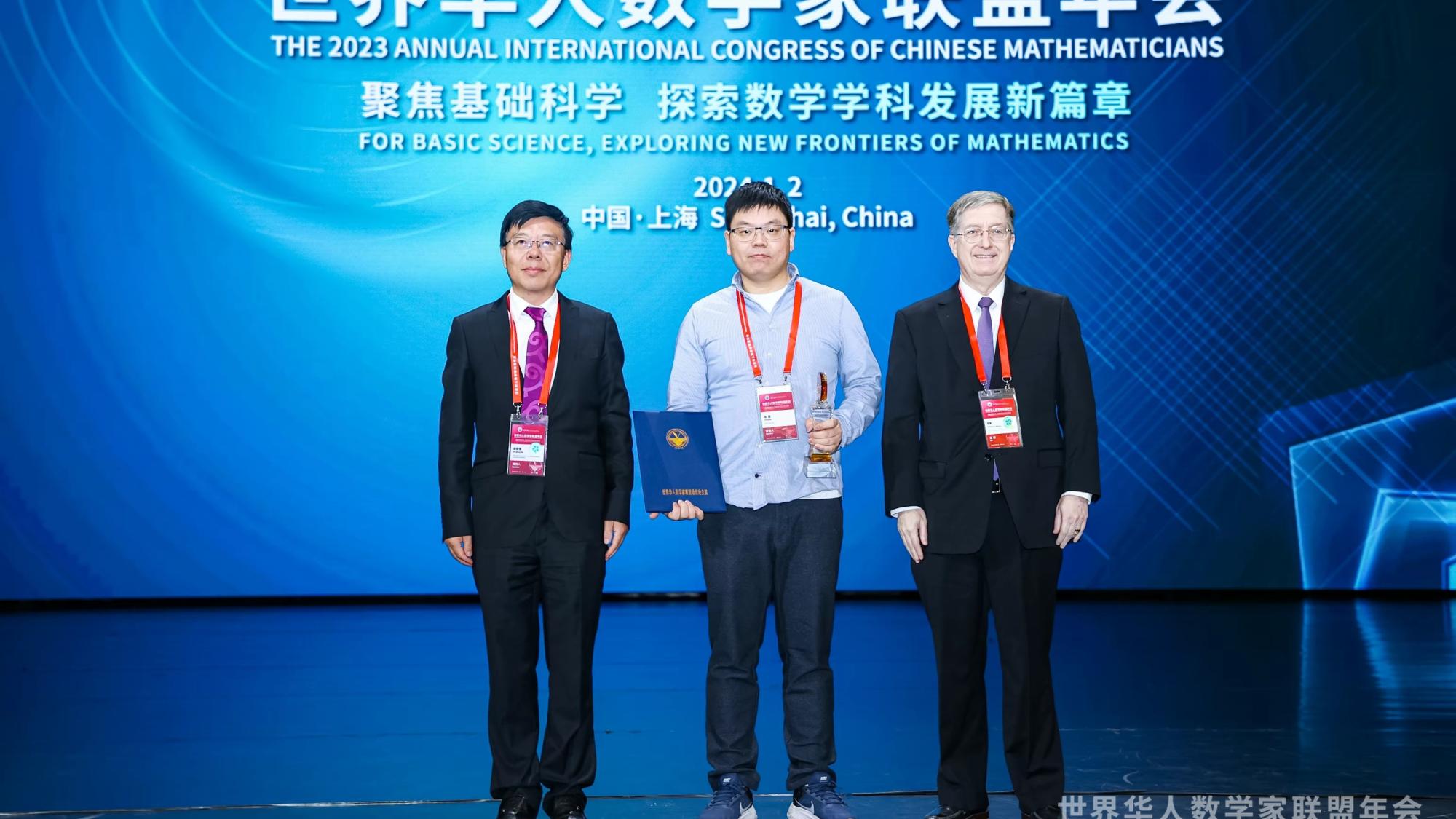Best mathematics paper award for Associate professor Meng Wu

Wu's research focuses on the expansion of numbers in various bases, such as the decimal system commonly taught in schools or the binary system used in computer science. It is notoriously difficult in mathematics to predict any property of the complexity of a number's expansion in a given base—be it base 10 or base 2—especially for well-known constants like pi or e.
In this context, "complexity" refers to the diversity of patterns present in the string of digits within the expansion. For instance, it remains uncertain whether the digit 0 appears infinitely often in the decimal expansion of pi (3.1415926...), although numerical simulations suggest this is likely. In the 1960s, the distinguished mathematician Furstenberg approached this challenge from a different angle. Instead of focusing solely on the expansion of a number in a single base, such as decimal, he proposed studying its expansions simultaneously in two different bases, like decimal and binary.
Furstenberg introduced a heuristic principle suggesting that if two bases are "independent," then a number cannot have expansions of low complexity in both bases. Two bases are considered "independent" if one cannot be expressed as a power of the other; for example, bases 2 and 4 are dependent, while bases 10 and 2 are independent. Wu made significant progress towards this conjecture by demonstrating that nearly all numbers adhere to this principle. Any exceptional numbers, if they exist at all, would form a very small subset of all numbers. In more technical terms, the family of these exceptional numbers has a fractal dimension approaching zero.
The prize was awarded at the ICCM 2023 conference in Shanghai in January 2024.